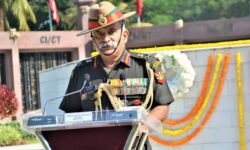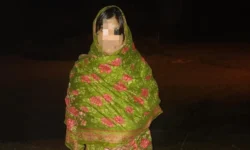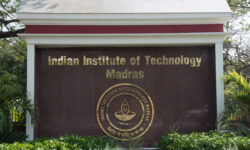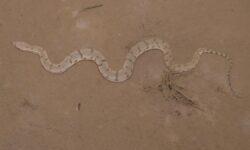
GUWAHATI
The National Council of Educational Research and Training (NCERT) has drawn flak for passing off an African rhino as the one-horned Indian rhinoceros in the class 4 mathematics textbook.
Netizens, educationists, and wildlife experts in Assam said the NCERT used an erroneous text alongside the faulty illustration of the rhino in the “Did you know?” section of the “1,000s Around Us” chapter of the textbook. The section also features the ‘Thousand Pillars Temple’ and a brief account of India.
The text accompanying the illustration of a two-horned rhino reads, “The Indian rhinoceros is found in the foothills of the Himalayas in Northeast India. Floods and medicinal value of their horns have led to a reduction in their population. In the early 1900s, their population was driven to near extinction with as little as 200 rhinoceroses. But with recent conservation measures, there are now around 4,000 rhinoceroses.”
The faulty information – apart from the African rhinos, the Sumatran rhino is the only two-horned species in Asia – generated a range of reactions from ridicule to outrage.
“In the recently published NCERT class 4 Math textbook, an Indian rhino is shown to have two horns (Pg 45). Such mistakes are not acceptable in an NCERT textbook,” Udoy Bhaskar Borah wrote on social media platform X.
Bibhab Kumar Talukdar, the Assam-based chair of the Asian Rhino Specialist Group of IUCN’s Species Survival Commission, said the misinformation in an NCERT textbook was worrying.
“The name of the greater one-horned rhino should have made it clear that it has one horn. These rhinos are also largely found in the floodplains ecosystem of Assam, besides the foothills of the Himalayas,” he said.
He said the NCERT’s biggest folly was mentioning the medicinal value of the rhino horn, which could normalise poaching in the minds of children. “Further, the NCERT should note that foods in Assam are a natural phenomenon and essential for the floodplains ecosystem,” he added.
Assam’s Education Minister, Ranoj Pegu, said he has instructed the State Council of Educational Research and Training (SCERT) to examine the matter.
“I have not seen the NCERT textbook. If it is indeed erroneous, the SCERT will inform the NCERT,” he said.







